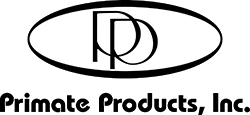Update from Primate Products, Inc.
By Thomas J. Rowell
In recent months, the media has been focused on two events surrounding Primate Products Inc. (PPI) operation in Southwest Florida, which were both initiated by animal activists. A recent article in Bloomberg Business Week does an excellent job in providing an overview (Bloomberg). More specifically, one event involved a Hendry County investigation into zoning issues as it relates to land use. The second event was an investigation by the Office of Laboratory Animal Welfare (OLAW) and the United States Department of Agriculture (USDA), which was initiated as the result of an activist plant who was hired as an animal caretaker in September of 2014.
Hendry County initiated an investigation (Complaint No 14-0240) in March of 2015 of possible violations of the Land Development Codes at PPI and another primate facility located within the county. Specifically there were concerns regarding PPI using land inconsistent with current zoning. PPI responded to the complaint in April of 2015 (Response to complaint). In addition a site visit was performed by the County in May.
On August 19, 2015 the County officially finalized their investigation. They concluded, based on observations made at the site inspection and information obtained by regulatory authorities and others, that the activities occurring on the property occupied by PPI were in compliance with Hendry County’s land use regulations (PR – Hendry County Concludes Investigations).
Primate Products Inc. is appreciative of the work performed by Hendry County staff. We reiterate that there is no better place to find the knowledge of support agencies, mindset of workers, and community understanding of farming and livestock production and maintenance than in Hendry County Florida.
The investigation started by OLAW in June of 2015, which was initiated as the result of an activist plant hired as an animal caretaker, who spent 8 months on site covertly obtaining video and pictures of the operation, has recently come to an end (OLAW Report). OLAW, working with PPI’s Institutional Animal Care and Use Committee (IACUC) and staff, were able to identify strengths and at the same time uncovered some weaknesses in the animal welfare program, which were corrected.
Over a period of several weeks, PPI and OLAW maintained an open dialog regarding PPI’s animal welfare program, which culminated into a joint site visit by OLAW and the USDA in August of 2015. As a result of the visit and the ongoing dialog, OLAW concluded the following: “Based on its assessment of PPl’s corrective actions, review of the supporting documents, and the information gathered during the site visit, OLAW found PPI fully compliant with the provisions of the PHS Policy and the Guide.”
The results of the USDA investigation are still pending. PPI is appreciative of the time and effort that OLAW staff put into the process, and feel that this experience has resulted in a much stronger animal welfare program.
